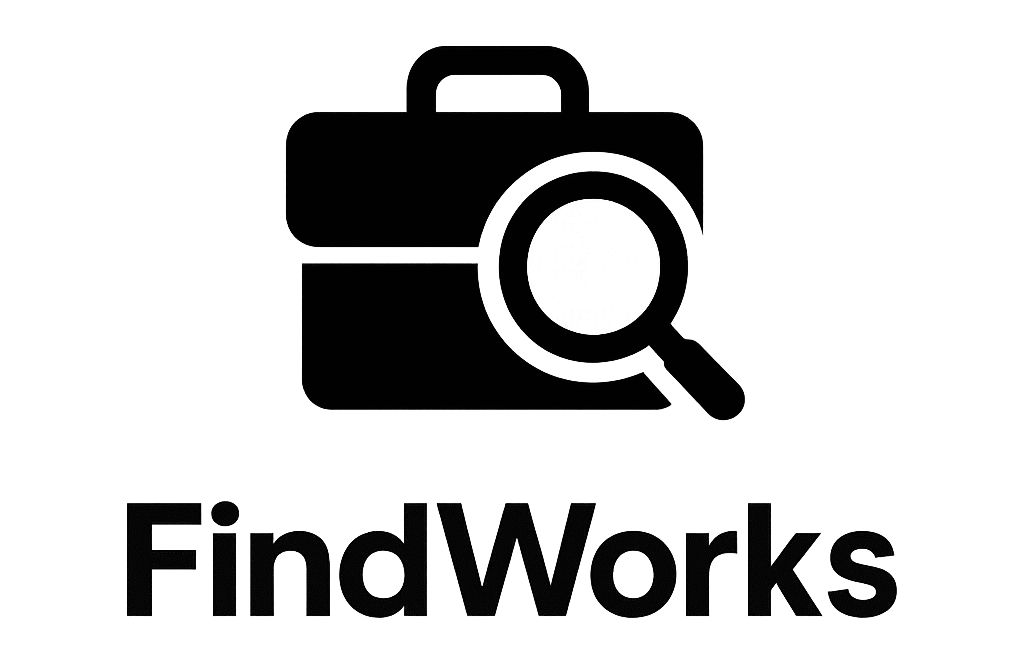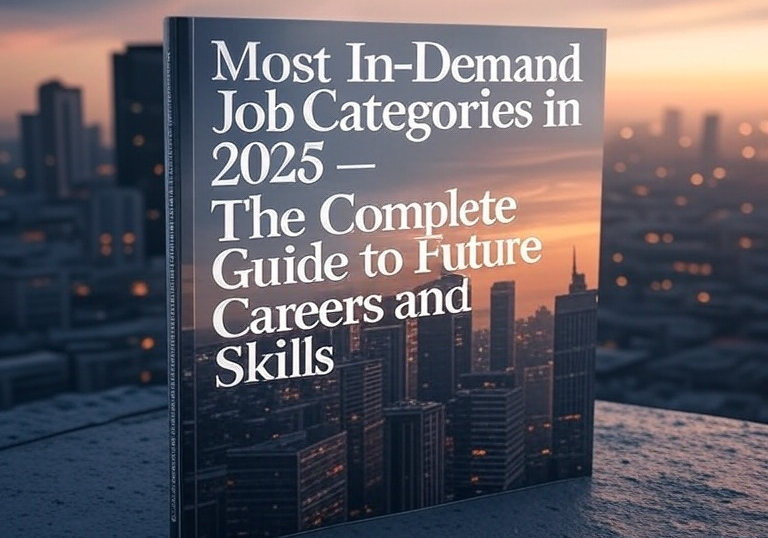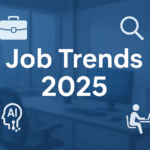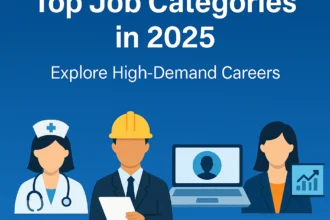Most In-Demand Job Categories in 2025: What You Need to Know
As we move deeper into the 2020s, the workforce continues to evolve rapidly. Technology, globalization, and shifting economic landscapes are reshaping what “in-demand” work looks like.
In this guide, we’ll dive into the most in-demand job categories in 2025, explore emerging trends, highlight essential skills, and show you how to align your career path with future needs.
Why This Matters most in-demand job categories in 2025
The job market in 2025 is not just about titles and salaries — it’s about longevity, adaptability, and relevance. Industries that were thriving a decade ago may now be shrinking, and new sectors are emerging faster than ever.
Understanding which job categories are gaining momentum is essential whether you’re a student, a mid-career switcher, or a hiring manager.
In fact, many of the “top job categories in 2025” articles focus on broad fields, but few go deep into what makes a category truly future-proof. This guide aims to fill in those gaps.

Top most in-demand job categories in 2025
Below, you’ll find the key categories that are projected to see strong demand, growth, and resilience over the coming years. We break them down by sector, opportunities, and what drives demand.
1. Artificial Intelligence & Machine Learning
AI and ML are at the forefront of digital transformation. From autonomous systems to predictive analytics, this category touches virtually every sector. Roles include:
- Machine Learning Engineer
- Data Scientist specializing in AI models
- AI Ethics & Governance Specialist
- Computer Vision Engineer
Why it’s in demand: almost every company is looking to embed AI solutions into their workflows. The ability to build, optimize, and maintain AI systems is becoming a key differentiator.
2. Cybersecurity & Privacy
As more data flows across clouds, devices, and networks, the need to protect it grows exponentially. Key roles:
- Security Analyst / Engineer
- Privacy Compliance Officer (e.g. GDPR, CCPA)
- Cloud Security Architect
- Incident Response & Forensics Specialist
A single breach can cost millions—companies will continue investing heavily in prevention, resilience, and compliance.
3. Cloud Computing & Infrastructure
Cloud is no longer an option but a necessity. With hybrid and multi-cloud setups becoming standard, roles in this category thrive:
- Cloud Solutions Architect
- DevOps / Site Reliability Engineer (SRE)
- Platform Engineer
- Containerization / Kubernetes Specialist
Cloud infrastructure underpins many digital services—those who can design, deploy, and manage it are in high demand.
4. Green & Sustainable Technologies
Environmental concerns and regulatory pressure drive investment into green tech. Growing roles include:
- Renewable Energy Engineer (solar, wind)
- Sustainability Analyst / Consultant
- Carbon Accounting Specialist
- Environmental Compliance Officer
This is not a niche — as governments and corporations commit to net zero, jobs in this area will scale further.
5. Healthcare & Biotechnology
Advances in biotech, genomics, and personalized medicine are disrupting traditional healthcare. Jobs include:
- Genomics Data Analyst
- Telehealth Specialist / Remote Care Coordinator
- Biomedical Engineer
- Health Informatics Specialist
Populations are aging, and demand for high-quality, efficient care continues to rise globally. Tech-driven healthcare is the intersection to watch.
6. Digital Content & Experience Design
Even as automation grows, human-centric design remains critical. Key roles:
- UX / UI Designer
- Content Strategist / UX Writer
- Augmented Reality (AR) / Virtual Reality (VR) Designer
- Digital Product Manager
Every digital product needs to feel seamless, accessible, and intuitive. Professionals who understand user psychology, interaction, and storytelling will be prized.
7. Robotics & Automation
Automation is evolving beyond factories — logistics, agriculture, even retail are integrating robotics. Roles:
- Robotics Engineer
- Automation Systems Designer
- Process Automation Analyst (RPA)
- Field Service Technician for robotics systems
As costs drop and technology matures, robotics enters mainstream industries. This category will increasingly intersect with AI and IoT.
8. Business Intelligence & Analytics
Data-driven decisions drive competitive advantage. Roles include:
- BI Developer / Analyst
- Data Engineer
- Analytics Translator
- Decision Science Manager
Companies will keep investing in dashboards, predictive models, and actionable insights to stay ahead.
9. Education Technology (EdTech) & Upskilling
As the pace of change accelerates, continuous learning becomes essential. Roles:
- Instructional Designer / Curriculum Developer
- Learning Experience Designer
- EdTech Product Manager
- Online Tutor / Coach specialized in high-growth fields
Platforms that help people reskill for emerging job categories will see rising demand themselves.
10. Remote Work Enablers & Digital Services
Remote work has cemented its place. Supporting it are roles like:
- Remote Operations Manager
- Virtual Event Coordinator
- Collaboration Tools Integrator
- Online Community Manager / Moderator
The infrastructure of distributed teams, asynchronous workflows, and virtual experiences is a category in itself.
Skills & Competencies You’ll Need
Identifying hot job categories is one thing; thriving in them is another. Below are essential cross-category skills and domain-specific competencies.
Core Cross-Category Skills
- Adaptability & Learning Agility — ability to pick up new tools, domains, and methods fast.
- Critical Thinking & Problem Solving — analytical mindset to break down challenges.
- Communication & Collaboration — especially across distributed, multidisciplinary teams.
- Digital Literacy — comfort with tools, platforms, cloud environments, APIs.
- Ethical Awareness & Cultural Sensitivity — as tech integrates across borders and domains.
Domain-Specific Competencies
Each category demands specialized knowledge beyond soft skills. A few examples:
- AI & ML: Mathematical foundations (linear algebra, probability), model training, MLOps pipelines.
- Cybersecurity: Threat modeling, penetration testing, cryptography, compliance frameworks.
- Cloud & Infrastructure: Container orchestration, IaC (Infrastructure as Code), networks, cloud services.
- Green Tech: Environmental science, lifecycle analysis, regulatory standards.
- Health Tech: Bioinformatics, medical data standards, telehealth platforms.
- Design & UX: Human-centered design, prototyping, accessibility, interaction design.
- Robotics & Automation: Control systems, embedded systems, sensors, PLCs, ROS.
- Analytics: Data modeling, ETL pipelines, visualization, storytelling with data.
- EdTech: Learning theory, LMS platforms, assessment design, gamification.
- Remote Work Tools: Platform integrations, asynchronous workflows, community engagement.
Industry Insights & Trends to Watch most in-demand job categories in 2025
To choose wisely, it’s not enough to know categories — you must understand their trajectories, challenges, and context.
Accelerating Technology Adoption
Many industries that were slower to digitize are now rushing to catch up — manufacturing, agriculture, retail. That means AI, automation, and analytics will spread horizontally, not just in tech firms.
Regulation & Governance Lag
New technologies outpace laws. As AI, data, and biotech grow, governments will increasingly demand compliance, audits, and frameworks, creating roles in governance, ethics, and policy.
Hybrid Human–Machine Collaboration
Rather than pure automation, systems will be designed for symbiosis — humans working with AI, robots, or augmented systems. So professionals who can translate, supervise, or guide intelligent systems will be crucial.
Geographic & Remote Talent Wars
With remote work, talent pools are global. Organizations may hire from anywhere — which raises standards, but also creates fierce competition. Your ability to stand out matters more.
Lifelong Learning as Baseline
Careers will no longer be “once and done.” You’ll need to continually upskill, pivot, and adapt. Platforms, credentials, micro-degrees, and bootcamps will play increasingly important roles.
How to Choose the Right Category for You most in-demand job categories in 2025
Not every “hot” category is the right fit for every person. Here’s a framework to guide your decision.
1. Assess Your Interests & Strengths
You’ll excel in something you enjoy. Take career assessments, revisit past experiences, and see which categories feel like natural fits.
2. Analyze Market Demand in Your Region
Even if AI or biotech is booming globally, local demand, regulations, and market maturity matter. Use job boards, labor department data, and salary reports in your country or region.
3. Evaluate Entry Barriers & Learning Curve
Some categories require years of study or advanced degrees; others allow entry via bootcamps or self-learning. Choose a path that matches your timeline and resources.
4. Look for Adjacency & Flexibility
The best roles are those that let you pivot. E.g. starting as a data analyst can lead to roles in AI, BI, or even UX with right skills.
5. Build a Roadmap & Experiment
Draft a 1- to 3-year learning plan: try side projects, freelancing, internships. Test what resonates before fully committing.
Conclusion & Next Steps most in-demand job categories in 2025
The landscape of work in 2025 is dynamic and full of possibility. By focusing on **most in-demand job categories**, investing in relevant skills, and staying flexible, you can position yourself for success.
✅ Start by choosing one of the above categories that aligns with your interests.
✅ Build foundational skills (technical + soft).
✅ Engage in real projects, portfolios, or internships.
✅ Keep updating and adapting — the only constant is change.
Want to dive deeper into specific job categories? Check out these related articles on FindWorks:






